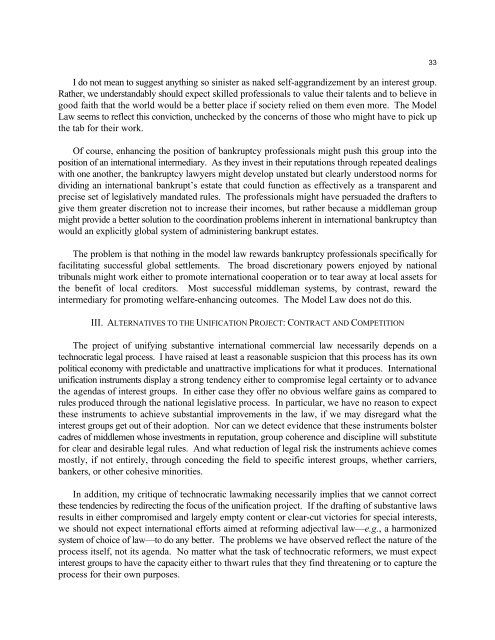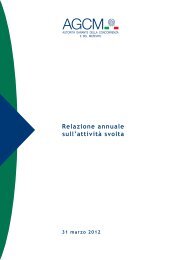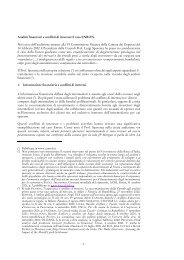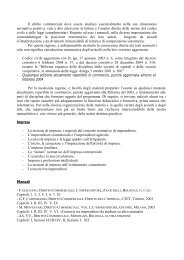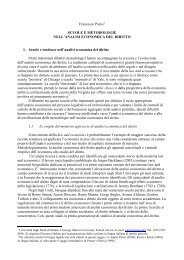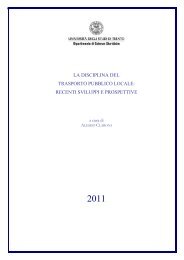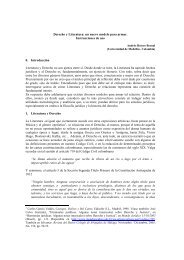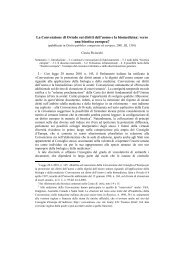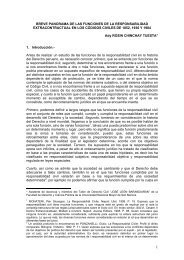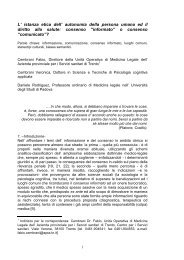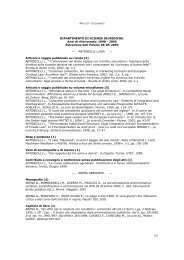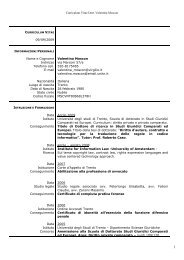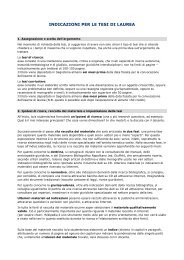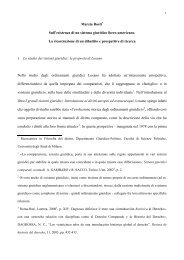The Futility of Unification and Harmonization in International ...
The Futility of Unification and Harmonization in International ...
The Futility of Unification and Harmonization in International ...
You also want an ePaper? Increase the reach of your titles
YUMPU automatically turns print PDFs into web optimized ePapers that Google loves.
I do not mean to suggest anyth<strong>in</strong>g so s<strong>in</strong>ister as naked self-aggr<strong>and</strong>izement by an <strong>in</strong>terest group.Rather, we underst<strong>and</strong>ably should expect skilled pr<strong>of</strong>essionals to value their talents <strong>and</strong> to believe <strong>in</strong>good faith that the world would be a better place if society relied on them even more. <strong>The</strong> ModelLaw seems to reflect this conviction, unchecked by the concerns <strong>of</strong> those who might have to pick upthe tab for their work.Of course, enhanc<strong>in</strong>g the position <strong>of</strong> bankruptcy pr<strong>of</strong>essionals might push this group <strong>in</strong>to theposition <strong>of</strong> an <strong>in</strong>ternational <strong>in</strong>termediary. As they <strong>in</strong>vest <strong>in</strong> their reputations through repeated deal<strong>in</strong>gswith one another, the bankruptcy lawyers might develop unstated but clearly understood norms fordivid<strong>in</strong>g an <strong>in</strong>ternational bankrupt’s estate that could function as effectively as a transparent <strong>and</strong>precise set <strong>of</strong> legislatively m<strong>and</strong>ated rules. <strong>The</strong> pr<strong>of</strong>essionals might have persuaded the drafters togive them greater discretion not to <strong>in</strong>crease their <strong>in</strong>comes, but rather because a middleman groupmight provide a better solution to the coord<strong>in</strong>ation problems <strong>in</strong>herent <strong>in</strong> <strong>in</strong>ternational bankruptcy thanwould an explicitly global system <strong>of</strong> adm<strong>in</strong>ister<strong>in</strong>g bankrupt estates.<strong>The</strong> problem is that noth<strong>in</strong>g <strong>in</strong> the model law rewards bankruptcy pr<strong>of</strong>essionals specifically forfacilitat<strong>in</strong>g successful global settlements. <strong>The</strong> broad discretionary powers enjoyed by nationaltribunals might work either to promote <strong>in</strong>ternational cooperation or to tear away at local assets forthe benefit <strong>of</strong> local creditors. Most successful middleman systems, by contrast, reward the<strong>in</strong>termediary for promot<strong>in</strong>g welfare-enhanc<strong>in</strong>g outcomes. <strong>The</strong> Model Law does not do this.33III. ALTERNATIVES TO THE UNIFICATION PROJECT: CONTRACT AND COMPETITION<strong>The</strong> project <strong>of</strong> unify<strong>in</strong>g substantive <strong>in</strong>ternational commercial law necessarily depends on atechnocratic legal process. I have raised at least a reasonable suspicion that this process has its ownpolitical economy with predictable <strong>and</strong> unattractive implications for what it produces. <strong>International</strong>unification <strong>in</strong>struments display a strong tendency either to compromise legal certa<strong>in</strong>ty or to advancethe agendas <strong>of</strong> <strong>in</strong>terest groups. In either case they <strong>of</strong>fer no obvious welfare ga<strong>in</strong>s as compared torules produced through the national legislative process. In particular, we have no reason to expectthese <strong>in</strong>struments to achieve substantial improvements <strong>in</strong> the law, if we may disregard what the<strong>in</strong>terest groups get out <strong>of</strong> their adoption. Nor can we detect evidence that these <strong>in</strong>struments bolstercadres <strong>of</strong> middlemen whose <strong>in</strong>vestments <strong>in</strong> reputation, group coherence <strong>and</strong> discipl<strong>in</strong>e will substitutefor clear <strong>and</strong> desirable legal rules. And what reduction <strong>of</strong> legal risk the <strong>in</strong>struments achieve comesmostly, if not entirely, through conced<strong>in</strong>g the field to specific <strong>in</strong>terest groups, whether carriers,bankers, or other cohesive m<strong>in</strong>orities.In addition, my critique <strong>of</strong> technocratic lawmak<strong>in</strong>g necessarily implies that we cannot correctthese tendencies by redirect<strong>in</strong>g the focus <strong>of</strong> the unification project. If the draft<strong>in</strong>g <strong>of</strong> substantive lawsresults <strong>in</strong> either compromised <strong>and</strong> largely empty content or clear-cut victories for special <strong>in</strong>terests,we should not expect <strong>in</strong>ternational efforts aimed at reform<strong>in</strong>g adjectival law—e.g., a harmonizedsystem <strong>of</strong> choice <strong>of</strong> law—to do any better. <strong>The</strong> problems we have observed reflect the nature <strong>of</strong> theprocess itself, not its agenda. No matter what the task <strong>of</strong> technocratic reformers, we must expect<strong>in</strong>terest groups to have the capacity either to thwart rules that they f<strong>in</strong>d threaten<strong>in</strong>g or to capture theprocess for their own purposes.


